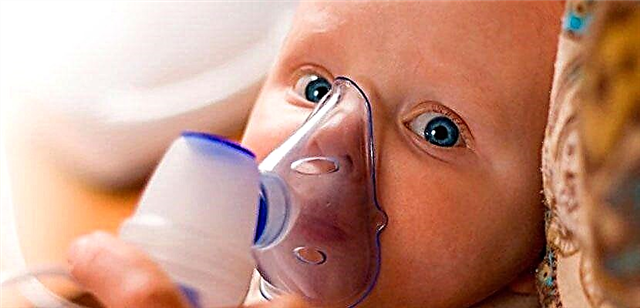Five reasons for a bad smell
- Poor cleaning of the mouth.
- Caries.
- Dry mouth.
- Diseases of the ENT organs.
- Other diseases.
Poor oral cleansing
Food after eating gets clogged in the spaces between the teeth, accumulates in the root zone and on uneven surfaces. And if it is not removed in time, it begins to decompose, exuding a fetid, rotten smell.
How to properly care for your teeth?
From an early age, the habit of brushing your teeth is established. It will be great to carry out hygiene procedures together, setting a good example.
In order to get rid of food debris, it is recommended to rinse your mouth after eating with water or special rinses. At least twice a day, you need to brush your teeth with a paste and a brush.

The cleaning process under 6 years old must be supervised by adults!
The child should hold the brush correctly and guide the bristles from the roots to the tips. In addition to the teeth, you also need to clean the inner surface of the cheeks, palate and tongue, as a large number of bacteria accumulate there.
The gaps between the teeth are passed with a special floss to remove food debris inaccessible to a regular toothbrush.
In a baby, the first tooth erupts at about 6 months. From this moment, teeth are cleaned with a special silicone brush with a limiter or in the form of a fingertip.
Spending only 5 minutes of time in the morning and in the evening on the toilet of the child's mouth is not a problem.
Caries
Quite often, dental caries is accompanied by a putrid odor from the mouth. Three main causes of tooth decay:
- poor cleaning of the mouth;
- improper nutrition;
- insufficient amount of saliva.
Hygiene is already clear. But what kind of food contributes to the formation of caries? Sweets of all varieties, seeds, sweet soda.
Saliva, on the other hand, performs a mineralizing function, since it contains ionic compounds of calcium and phosphorus in its composition. These, in turn, strengthen the enamel. Also, saliva reduces the acidity in the mouth, thereby protecting the tooth enamel from destruction. Therefore, it is necessary to ensure that its quantity is normal.
In order to prevent the formation of caries and the appearance of the smell of rot from the mouth, it is necessary to inspect and sanitize the child's oral cavity at least once a year. The first dental examination is carried out at 10 months, when the baby may have from 2 to 6 teeth.
Dry mouth
In childhood, saliva is produced in large quantities. Thanks to her, the oral cavity is constantly cleaned and prevents bacteria from multiplying. After all, it is the decomposition products of bacteria that have the smell of sulfur or ammonia.
Mucin, lysozyme, and lactoferrin contained in saliva have anti-inflammatory and protective functions. If a child talks a lot, breathes through his mouth, drinks little, is stressed, is in a stuffy, dry room, then his saliva dries up in his mouth, which contributes to an increase in the concentration of bacteria and a deterioration in the freshness of breath.
It is because of dryness that an unpleasant odor from the mouth occurs in infants.
 Measures to prevent this situation are:
Measures to prevent this situation are:
- air humidification, ventilation;
- ensuring normal breathing through the nasal passages;
- to enhance salivation, give water with lemon;
- a child from 5 years old should drink about one and a half liters of water per day (especially in the summer);
- exclude salty foods, be sure to give fresh fruits and vegetables (also increase salivation).
Diseases of the ENT organs
Difficulty nasal breathing, associated with a runny nose or adenoids, leads to a dry mouth with the consequences described above. The mucous contents from the nasopharynx enter the oral cavity, bringing in harmful bacteria, which also impair the odor from the mouth.
Children with chronic tonsillitis are accompanied by a fetid spirit due to suppuration and plugs in the lacunae of the tonsils. Also, little children like to stick various foreign bodies into their noses, which exude a fetid odor if they are untimely identified and stay in the nasal cavity for a long time.
All these conditions are the reason for visiting an otorhinolaryngologist. Bad breath in a child over two years old due to the presence of adenoids may require surgical treatment.

Other diseases
According to Dr. Komarovsky, breath smells due to the 4 factors described above, while other conditions and diseases have nothing to do with this. But you can still argue with that.
- odor of acetone or urinary appears at high temperature and intoxication, diabetes mellitus, dehydration.
- sour smell curdled milk from the mouth occurs in infants when they regurgitate. Most often, this phenomenon occurs in newborns or monthly children, since the sphincter between the stomach and esophagus is not sufficiently formed. Any overeating or passing gas from the stomach is accompanied by regurgitation. The sour aroma is still characteristic of babies suffering from gastritis and reflux esophagitis.
- sweetish smell - a feature in diseases of the liver and bile ducts.
- unhealthy breath odor occurs in diseases of the respiratory system (bronchitis, tracheitis, pneumonia).
Of course, parents will be alarmed by the fact that the previously pleasantly smelling baby began to exude unpleasant odors. This is solved independently by ensuring proper hygiene, optimal drinking regime and adequate air condition in the room.
If a child has a stuffy nose, fever, malaise, frequent regurgitation and abdominal pain, you need to seek help from specialists.
Article rating:



